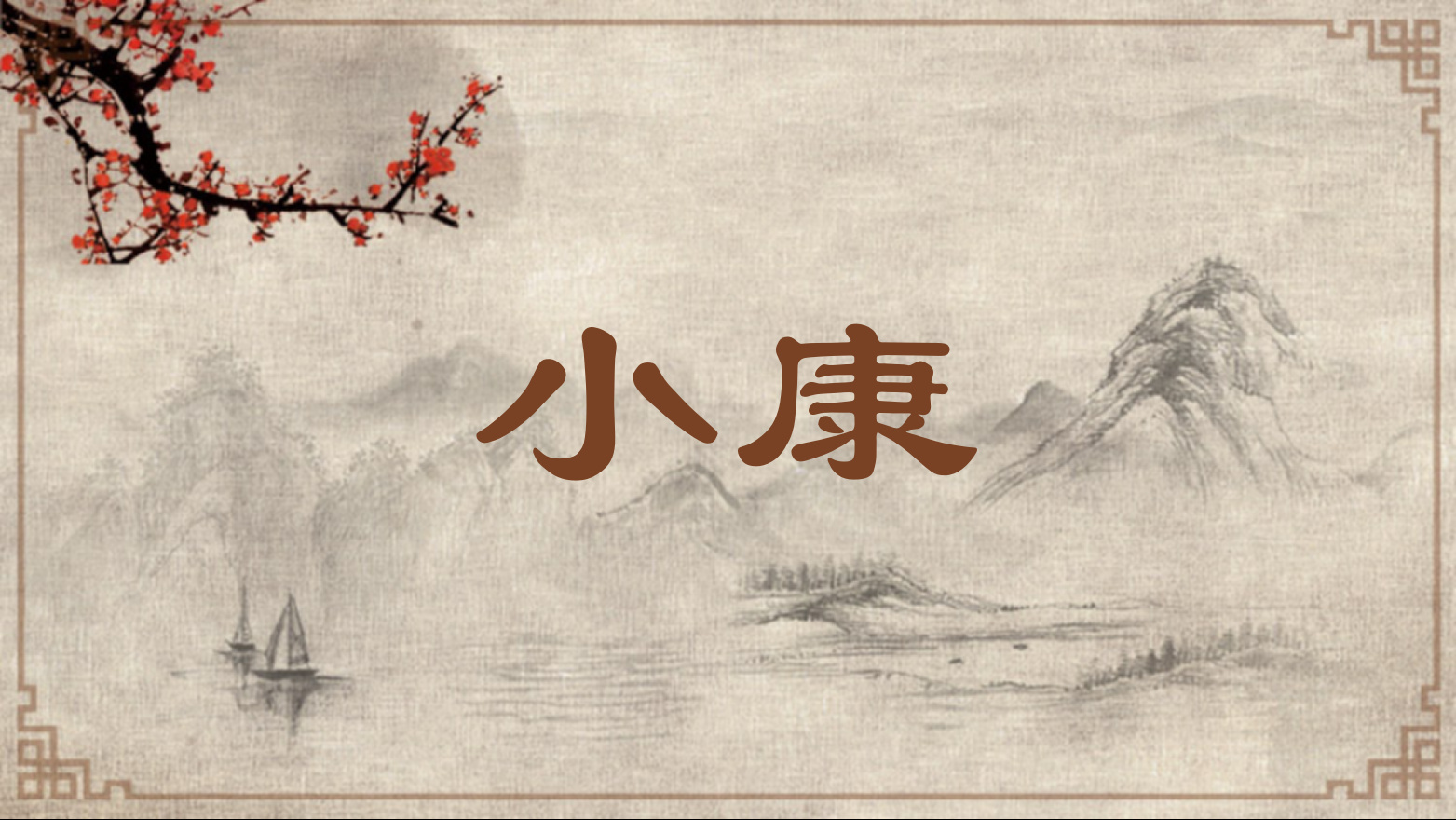小康
Modest Prosperity

作为一般古典词汇,指生活比较安乐、富裕。作为儒家重要政治概念,它是指夏禹、商汤、周文王、周武王、周成王和周公旦这样的杰出人物经过努力而达成的较好的治理状态:国家安定,社会秩序良好,人们遵礼守法,人民生活安乐,是次于“大同”的理想社会。如今所说的“小康”,基本是指广大人民安居乐业,家庭经济生活比较宽裕的状态。而“全面建成小康社会”,则是指包括经济、政治、文化、社会、生态文明等五个方面的建设目标。作为中国式现代化建设的目标,“小康社会”是一个有着深厚历史文化渊源的新概念。
Since ancient times, the term xiaokang (小康) has been understood to mean a state of peace and moderate prosperity. As an important political concept of Confucianism, it has been used to refer to what was seen as the commendable political climate achieved through the efforts of outstanding rulers such as Yu the Great of the Xia Dynasty, King Tang of the Shang Dynasty, kings Wen, Wu, and Cheng of the Zhou, and the Duke of Zhou. This social climate was characterized by national stability, good order, high public awareness of etiquette and law, and contented people. Such a society was held up as an ideal society, second only to that of Great Harmony, or datong (大同). Today, the Chinese people are being called upon to build a society of modest prosperity with balanced economic, political, cultural, social, and ecological advancement. As the goal of Chinese-style modernization, this xiaokang society is a new concept with deep historical and cultural roots.
引例 Citation:
◎民亦劳止,汔可小康。(《诗经·大雅·民劳》)
老百姓实在够辛苦,希望可以享受一下安乐。
The people are living a hard life and they hope they can have peace and moderate prosperity. (The Book of Songs)
推荐:教育部 国家语委
供稿:北京外国语大学 外语教学与研究出版社
责任编辑:钱耐安





